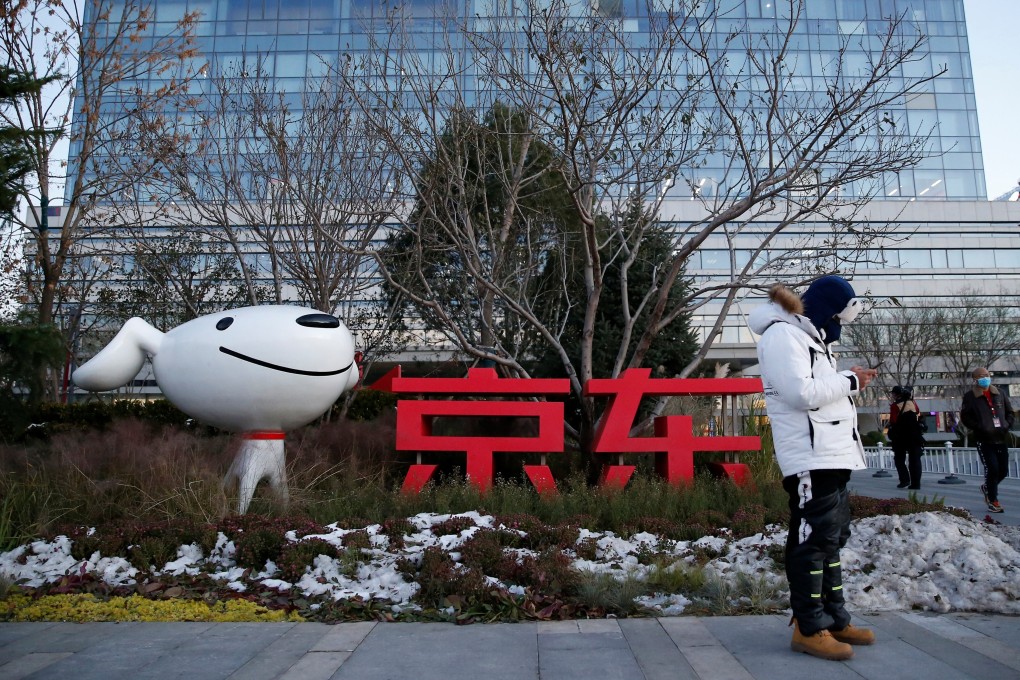Chinese e-commerce giant JD.com bets big on online grocery, lower-tier markets amid slowing economy
- The Beijing-based company is looking to boost its online grocery business through offline partnerships and expansion into lower-tier cities
- China’s e-commerce market is facing growing headwinds amid a souring economy and rigid Covid-19 restrictions

The Beijing-based firm announced on Tuesday that it aimed to bring more shoppers to its JD Supermarket service partly by strengthening partnerships with offline retailers, including Walmart.
The US supermarket chain has been collaborating with the Chinese company to attract more online customers during the pandemic, with JD Supermarket contributing to roughly 40 per cent of sales at several Walmart outlets in Beijing, said Liu Lizhen, a vice-president at JD.com.
The so-called omnichannel approach, which aims to create a seamless experience for consumers between physical stores and online platforms, mirrors strategies adopted by Amazon. The American e-commerce giant has managed to increase its physical retail presence in the US through a tie-up with upscale grocery chain Whole Foods Market, which it bought in 2017.
JD.com is renewing efforts in China’s online grocery market, despite tough challenges such as dampened consumer demand and logistics difficulties.
